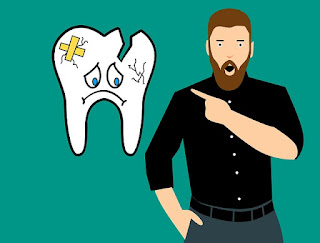Omnivista Health Learning Exposes Prostate Cancer Study
Omnivista Health Learning Exposes Government Study Causing Prostate Cancer In Participants
Omnivista Health Learning provided an article on vitamin E surrounded around facts that went against a large prostate cancer risk government study. The government study did not make it clear about the vitamin E that was used. It was a synthetic version that actually caused men to receive prostate cancer instead of preventing the disease.
A large study was conducted, 35,000 men over 9 years, and it was concluded Vitamin E increased the risk for prostate cancer - to combat earlier research that concluded vitamin E might reduce the risk, which left the researchers baffled as to why vitamin E supplements increased the risk (National Institutes of Health). Maybe they were baffled with the specifics as to why the risk increased, but I believe they knew the natural version of vitamin E would provide different results.
The Omnivista Health Learning article provided additional information. The article mentioned only one unnatural form of vitamin E was used even though 7 other forms exist; all 8 can be naturally taken in foods, and the study actually caused the participants to acquire prostate cancer because the synthetic version is completely unnatural "disrupting the nutrient metabolism that helps the body fight prostate cancer" (Omnivista Health Learning).
A study in mice found Vitamin E supplementation to cause tissue toxicity, inflammation, and oxidative stress (Jansen et al.). Inflammation and oxidative stress are both causes for cancer.
Since the government study was large many people accepted the study as conclusive. People who read the study were probably unaware the trial was conducted with a fake form off vitamin E unless they were knowledgeable in the area. Natural forms exist within foods and the study would have been more conclusive if the participants were given that natural form of vitamin E instead of the synthetic form.
A Powerful Antioxidant
Vitamin E in its natural form, also known as R-R-R alpha tocopherol, is a potent antioxidant that protects cells from oxidative stress and regulates immune function (National Institute of Diabetes and Digestive and Kidney Diseases). The synthetic form causes oxidative stress which could have been one of the reasons why the large study found the supplement to increase the risk for prostate cancer.
Natural Vitamin E Reduces Heart Disease Risk
Studies were conducted for the natural and synthetic forms of vitamin E for heart disease, and it was discovered the natural form of vitamin E, acquired from food in big amounts, were at a reduced risk for heart disease compared with the supplement trials utilizing the unnatural form which had mixed results (Buesing). The natural form also "prevents clots from forming in heart arteries" (Harvard School of Public Health).
Improves Severe Fatty Liver Disease in Children
The natural form of vitamin E, and not the unnatural kind, improved the severe form of fatty liver disease in over half of the children in the study and another study found the natural form of vitamin E to improve nonalcoholic steatohepatitis (NASH) overall. Another significant study that highlighted the positive effects for the natural form of vitamin E.
Prevents Pancreatic Cancer and Metastases
A natural form of vitamin E has been shown to prevent pancreatic cancer, prevent the spread, and metastases in mice and achieved the same results in human stem-like cells (Husain et al.).
Conclusion
The natural form of vitamin E definitely has shown medically proven positive effects for the human body. Unfortunately, the synthetic version of Vitamin E is unnatural and caused a deadly disease, prostate cancer, in innocent people. The government failed with their medical study by causing healthy people to die earlier. I believe they knowingly held back the truth about the vitamin E they used because medical professionals who put the study together know the difference between the two Vitamin E's. I think they knowingly took advantage of peoples lack of vitamin E knowledge. The government knew people would assume when they saw vitamin E it was a good kind they see all the time on the back of packages.
Works Cited
National Institutes of Health. “Prostate Cancer Risk from Vitamin E Supplements.” National Institutes of Health (NIH), 22 May 2015, www.nih.gov/news-events/nih-research-matters/prostate-cancer-risk-vitamin-e-supplements.
Omnivista Health Learning. “Men, I’m Revealing the Truth behind Vitamin E and Prostate Health | OmniVista Health Learning.” Learning.omnivistahealth.com, learning.omnivistahealth.com/2020/04/men-im-revealing-the-truth-behind-vitamin-e-and-prostate-health/.
Jansen, Eugene, et al. “Tissue-Specific Effects of Vitamin E Supplementation.” International Journal of Molecular Sciences, vol. 17, no. 7, 19 July 2016, p. 1166, 10.3390/ijms17071166. Accessed 5 July 2022.
Buesing, Dr Scott. “The Different Forms and Benefits of Vitamin E.” Www.iherb.com, June 2021, www.iherb.com/blog/forms-and-benefits-of-vitamin-e/1291. Accessed 22 Jan. 2023.
National Institute of Diabetes and Digestive and Kidney Diseases. “Vitamin E.” Nih.gov, National Institute of Diabetes and Digestive and Kidney Diseases, 20 Apr. 2016, www.ncbi.nlm.nih.gov/books/NBK548283/.
Husain, Kazim, et al. “δ-Tocotrienol, a Natural Form of Vitamin E, Inhibits Pancreatic Cancer Stem-like Cells and Prevents Pancreatic Cancer Metastasis.” Oncotarget, vol. 8, no. 19, 28 Feb. 2017, pp. 31554–31567, 10.18632/oncotarget.15767. Accessed 11 Sept. 2021.
Harvard School of Public Health. “Vitamin E.” The Nutrition Source, 18 Sept. 2012, www.hsph.harvard.edu/nutritionsource/vitamin-e/.






Comments
Post a Comment